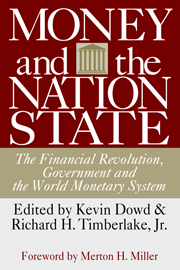My mentor and family friend, the late Nobel laureate Friedrich Hayek, wrote many pathbreaking, influential books. One, The Fatal Conceit: The Errors of Socialism, was published in 1988, when Hayek was 89 years of age. In it, Hayek argued that man’s “fatal conceit” is the presumption that he “is able to shape the world around him according to his wishes.” Hayek’s fatal conceit haunts the hallowed halls in Washington, D.C. Indeed, that is why so many bipartisan foreign-policy adventures—such as America’s foray into Afghanistan—are undertaken, and why the world is strewn with their wreckage.
Another high priest of economic theory, my mentor, and good friend, the late Nobel laureate Robert “Bob” Mundell illustrated Hayek’s fatal conceit with what he dubbed the “Afghan Effect.” Bob often discussed the Afghan Effect when we served together on the United Arab Emirates’ Financial Advisory Council. Following the Soviet invasion of Afghanistan, the United States imposed a grain embargo on the Soviets in January 1980. With that, American farmers were prohibited from selling grain to the Soviets, an empire which was experiencing a huge grain deficit at the time. President Jimmy Carter, on the ill‐conceived advice of his National Security Adviser Zbigniew Brzezinski, an adviser who suffered from the fatal conceit, had weaponized grain.
In response, the Soviets looked for an escape. They found one in Argentina. Indeed, the Argentines were delighted to cut a deal with the Soviets. The Argentine farmers sold large quantities of grain, the Soviets obtained a good price, and American farmers were left out to dry. The icing on the cake was the fact that the Argentine military junta was handed an enormous benefit on a silver platter.
Hayek and Mundell have left us with lessons—lessons which have never been learned by the establishment in Washington, D.C. We live in a world in which economies are “open” in varying degrees, a world in which complex political and economic interactions among countries, whether “big” or “small,” are difficult, if not impossible, to foresee. Better to not meddle. You will probably upset an applecart.










